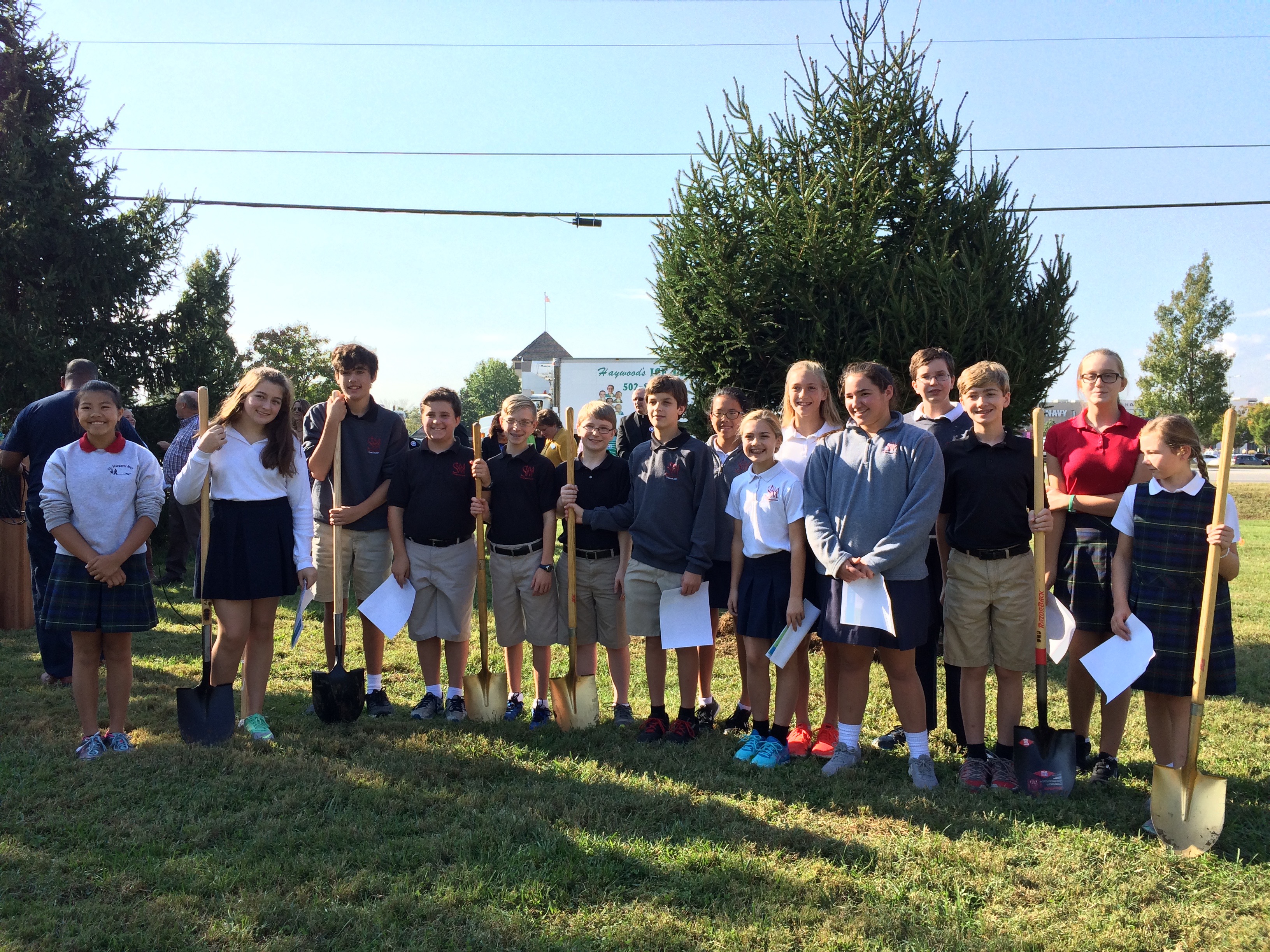Citizen Scientists
Citizen Scientists

Student Citizen Scientists at St Margaret and Mary Elementary School, the site for our Green Heart pilot project Green for Good.
What is Citizen Science?
According to the National Geographic Encyclopedia, Citizen Science is the practice of public participation and collaboration in scientific research to increase scientific knowledge. Through citizen science, people share and contribute to data monitoring and collection programs. Usually this participation is done as an unpaid volunteer.
Collaboration in citizen science involves scientists and researchers working with the public. Community-based groups may generate ideas and engage with scientists for advice, leadership, and program coordination. Interested volunteers, amateur scientists, students, and educators may network and promote new ideas to advance our understanding of the world.
Scientists may create a citizen-science program to capture more or more widely spread data without spending additional funding. They often work with community groups that are already collecting such information, such as birders or weatherbugs, to expand their studies and databases.
Volunteers have varying levels of expertise, from kids in their backyards to members of high school science clubs to amateur astronomers with sophisticated home equipment. Modern advances in technology make citizen science more accessible today than ever before. The success of any citizen science project depends on the establishment of a well-devised monitoring program and the dedication of its volunteers.
Citizen-science projects may include wildlife-monitoring programs, online databases, visualization and sharing technologies, or other community efforts. Read more via National Geographic.
Citizen Science and Environmental Research
According to the Environmental Protection Agency (EPA), citizen science uses the collective strength of communities and the public to identify research questions, collect and analyze data, interpret results, make new discoveries, and develop technologies and applications – all to understand and solve environmental problems. Citizen science covers a suite of innovative tools to enable the public to apply their curiosity and contribute their talents to science to further environmental and health research. Citizen scientists can provide information that would not otherwise be available due to time, geographic, or resource constraints.
How Does Citizen Science Help Researchers?
- Citizen scientists leverage resources by using the efforts of a large group of people to solve problems, start conversations, and gather input to prioritize actions and activities.
- Citizen scientists help research teams fills data gaps by gathering crowdsourced data that would be hard to obtain due to time, geographic, or resource constraints.
- Citizen scientists help build meaningful relationships with communities to increase engagement and problem solving.
Read more from the EPA regarding citizen science.
Opportunities to Participate
Smell My City
Do you smell something out of the ordinary? Report it using the Smell My City app! This app is used to report unusual odors, and collect data that can help local residents, organizations and regulators to track down potential sources of pollution in their neighborhood.
Bike Sense Louisville
Bike Sense Louisville is a public art project that involves citizens riding their bikes to collect data on temperature, air-quality and location. Small sensors collect this data and it is interpreted into sound that is played real-time on the Big Four Bridge. Visit the BikeSense Louisville website to learn more and get involved!
Louisville Data Commons
Louisville Data Commons is an open data website designed to store and share data generated by Louisville Community members and non-profit organizations. It is here that you can also find the data logged into the Smell My City app.
Healthy Trees Healthy Cities
The Healthy Trees Healthy Cities app is a resource made by The Nature Conservancy to help improve the quality of life in communities. The app seeks to do this by covering the necessary steps to properly plant and care for trees. If you would like to learn how you can support trees where you live, work, and play, then head over to their Healthy Trees Healthy Cities website.
Envirome's Clinical Trials
The Envirome Institute conducts a variety of research to investigate the relationships between the external environment and human health outcomes. Research methods include retrospective analysis, prospective surveys, field monitoring, modeling, and clinical trials. We invite all interested parties to learn more about our clinical trials and to consider joining a research study.
Contact
Reach the Envirome or Center
To learn more about citizen science, the Center's dedication to reducing inequality in Louisville, or the Envirome's research and clinical trials you can email the Center, email the Envirome, call 502-852-5879, or find us on Facebook @HealthyAirWaterandSoil or @CLBEnviromeInstitute.
Information for Research Participants
Research studies involving humans must be approved in advance by a committee - often called an Institutional Review Board (IRB) or an Institutional Ethics Committee (IEC). IRBs are made up of scientists and doctors, as well as people from the local community. Before allowing a research study to go ahead, the IRB reviews it to make sure it is well designed, that the risks are as low as possible, and that these risks are reasonable when compared to the importance of what may be learned. Learn more from the Office for Human Research Protections (OHRP).
The University of Louisville recognizes the importance of your decision to take part in a research study. Therefore, we want you to be educated in all the aspects of research before you decide to participate. It is important to consider the level of risk and compare it to any benefits when deciding whether or not to participate in human subject’s research. For more valuable information about participation, The Office for Human Research Protections (OHRP) has developed resources for you to learn about participating in research and making informed decision. Visit their "About Research Participation" page. You can also view the OHRP brochure "Becoming a Research Volunteer: It's Your Decision".